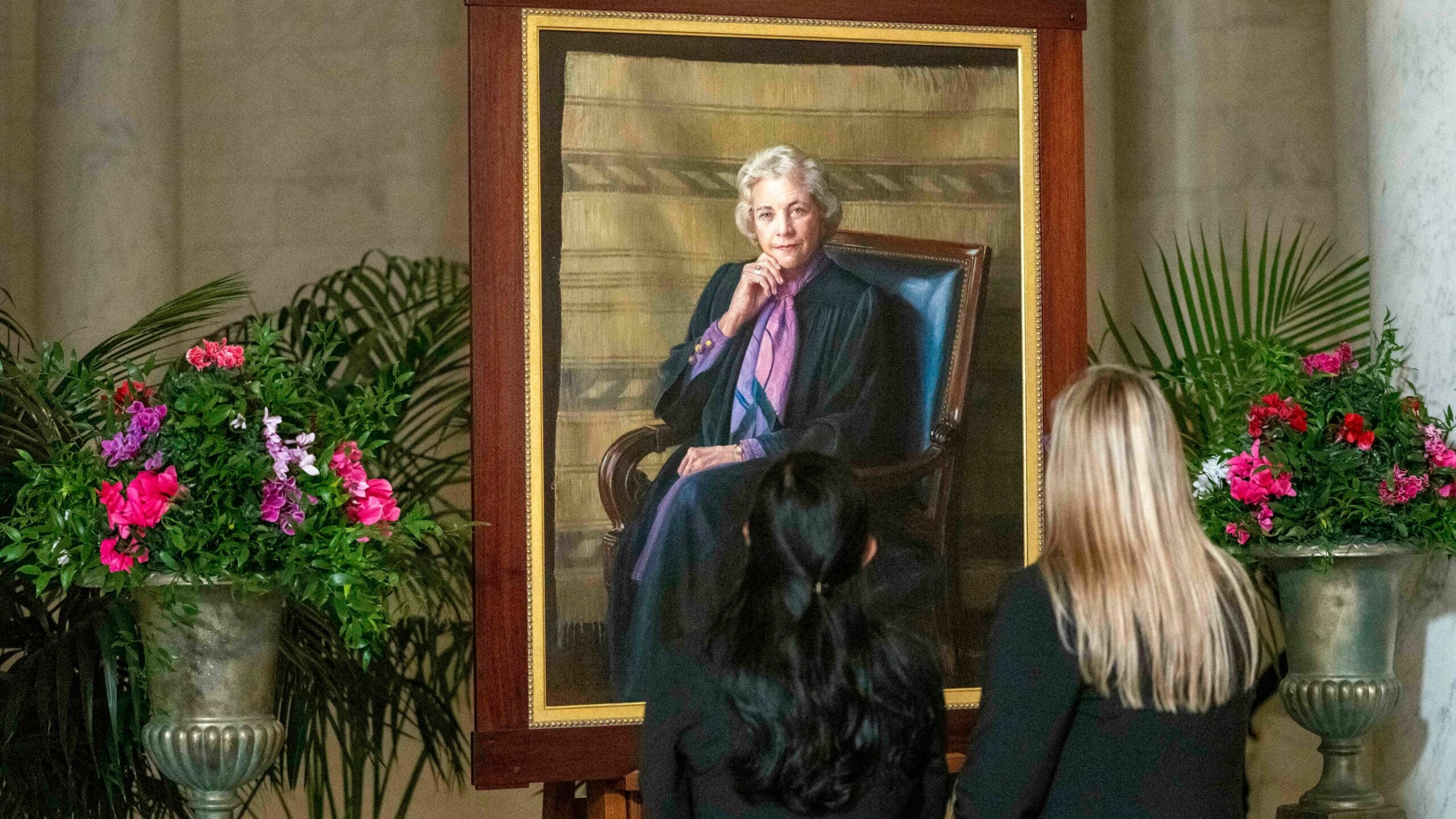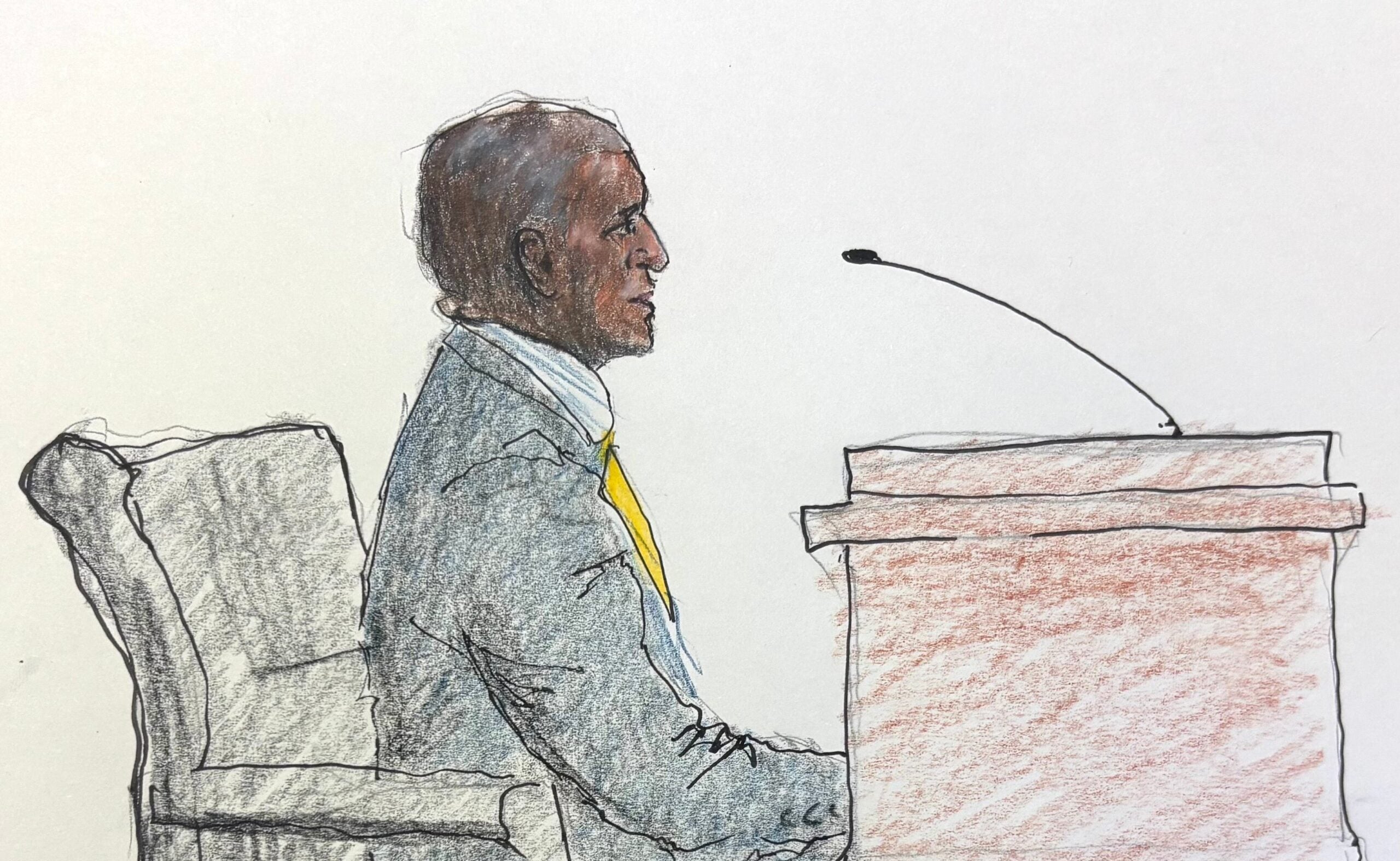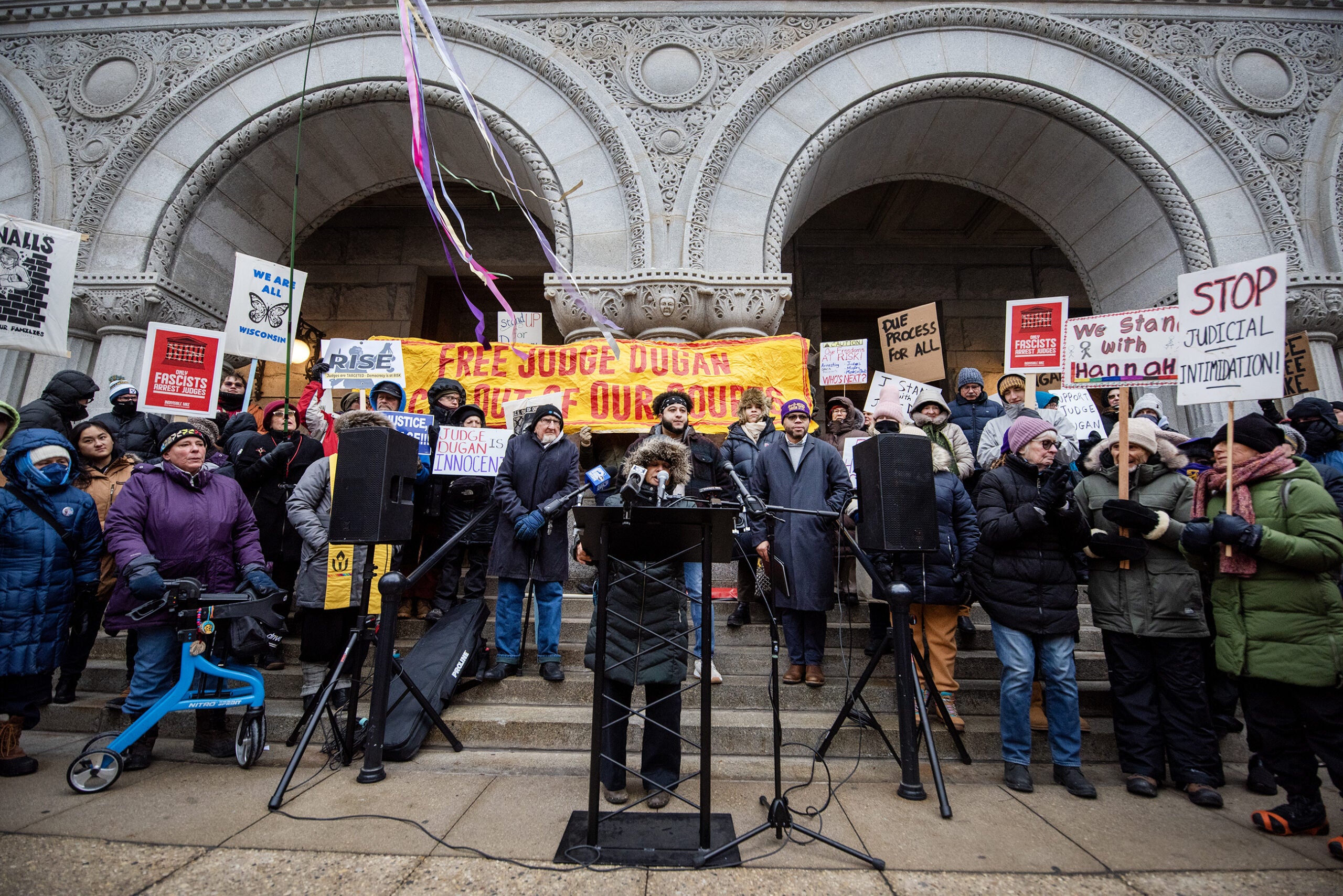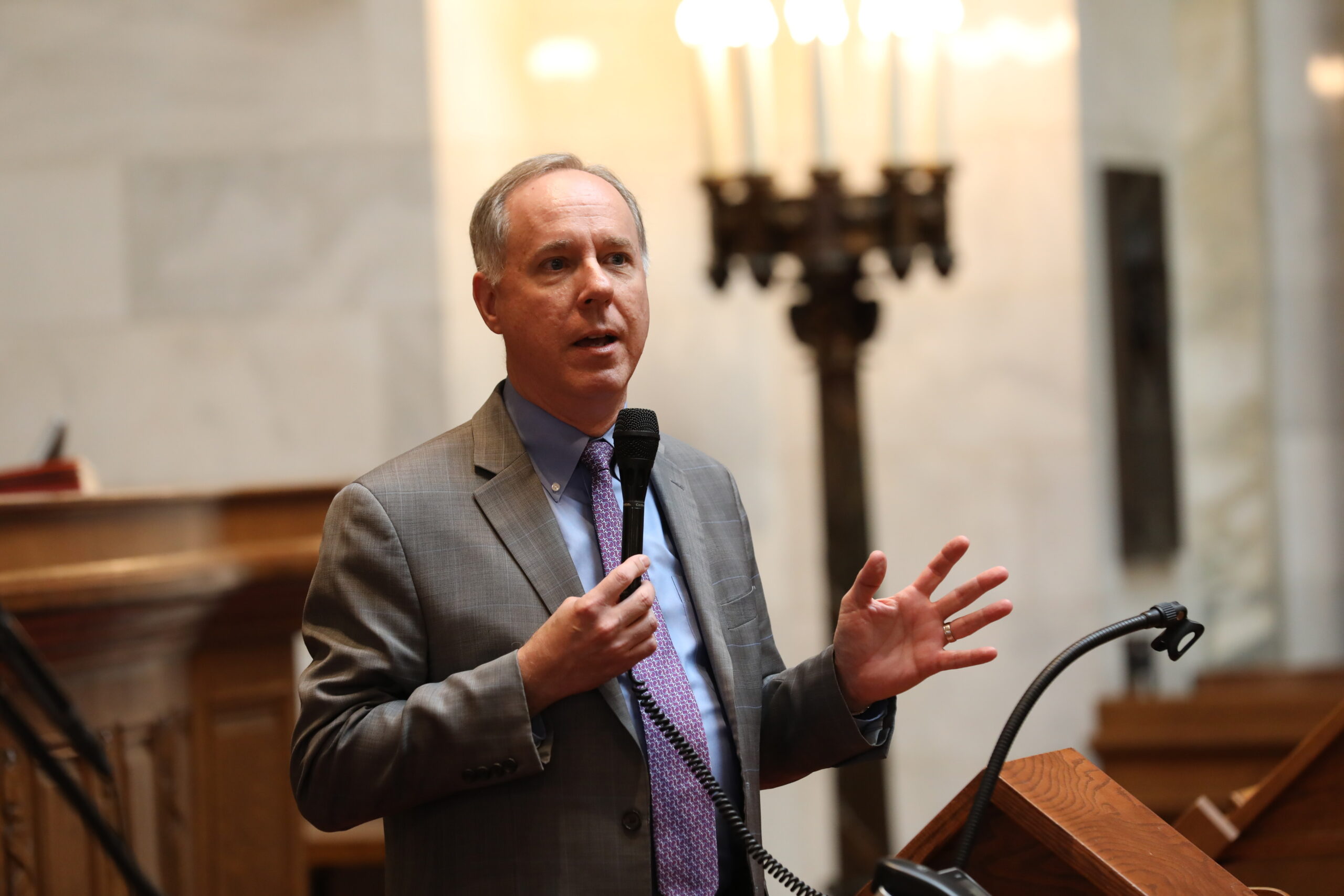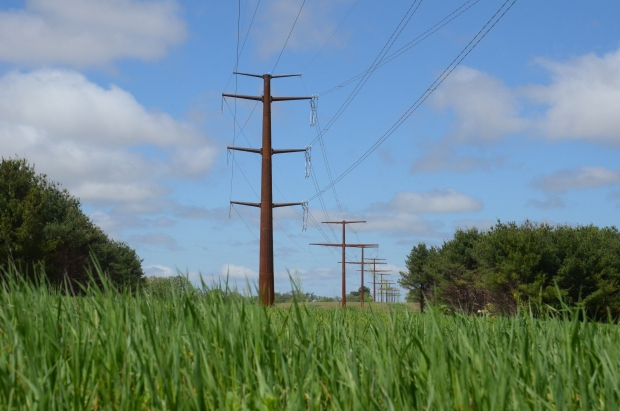Dignitaries, loved ones and members of the public are gathering this week to honor former Supreme Court Justice Sandra Day O’Connor, the first woman to serve on the court, who died Dec. 1 at the age of 93.
Mourners poured through the Supreme Court’s Great Hall on Monday to pay their respects to O’Connor as her body lay in repose. Her funeral — which will be held in Washington, D.C., and live-streamed to the public on Tuesday — will feature eulogies by President Biden and Chief Justice John Roberts.
O’Connor is being remembered as a trailblazing jurist who, as a moderate conservative, cast the deciding vote on scores of important cases dealing with everything from abortion and affirmative action to national security and campaign finance.
News with a little more humanity
WPR’s “Wisconsin Today” newsletter keeps you connected to the state you love without feeling overwhelmed. No paywall. No agenda. No corporate filter.
But, as many tributes have noted, her quarter-century tenure on the bench was only one of the ways she shaped American society.
O’Connor served in the Arizona state Senate, including as Republican majority leader, long before Ronald Reagan nominated her — and the Senate unanimously confirmed her — to the U.S. Supreme Court in 1981.
And she spent many years advocating for judicial independence and civics instruction after her retirement from the court in 2006, until dementia forced her to withdraw from public life in 2018.
“As my three sons are tired of hearing me say, ‘It’s not enough to understand, you’ve got to do something,’” O’Connor wrote in her farewell letter that year. “There is no more important work than deepening young people’s engagement in our nation.”
Jay O’Connor, one of those sons, told NPR that while his mother may be best known for making history, she leaves behind a rich legacy of public service.
“She lived and breathed the notion that every citizen has a duty to understand how our democracy and how our government works and has to be part of the process, has to contribute to it,” he told Morning Edition‘s Leila Fadel. “She believed that from the earliest part of her career, and she lived that principle throughout her life.”
O’Connor’s son remembers her as a “force of nature”
O’Connor’s tireless work ethic has been well-documented — she reportedly didn’t miss a day of work even while she was being treated for breast cancer.
Her son, Jay, also remembers her as having “unearthly energy.” After a demanding day of work, he said, she would relax by playing three sets of tennis or 18 holes of golf.
“We had so many events, and sporting, and the dance and three parties in one night,” he recalled. “She just moved at 100 miles an hour, and she was a force of nature.”
As a key swing vote, O’Connor’s actions were hugely consequential for the nation. Her son says that on a personal level, she approached them with a focus on building consensus. He says that when asked what it takes to be successful on the court, she used to say, “It takes five.”
“It’s all about bringing others, engaging, hearing what their issues are, acknowledging and dealing with their issues and incorporating them in your decision,” he said. “You bring it all together and you get something done.”
He pointed to her relationship with late Justice Ruth Bader Ginsburg — who became the second woman to join the court in 1993 — as an example of that. While the two often disagreed on the issues, they maintained what he called a heartwarming friendship.
He says his mom was thrilled when Ginsburg joined the court, and “did everything to embrace her.” When a major women’s rights case came up, he says she deferred the “plum assignment” of writing the opinion to Ginsburg because of her interest and experience in that area.
That story is especially poignant these days, O’Connor says, because it “seems like we’ve forgotten to disagree in an agreeable way.”
He says a fundamental part of democracy is being able to listen and engage with people who have different views than your own. And that, he adds, is something his mom recognized remarkably early on.
She spent years advocating for civics instruction and engagement
O’Connor retired from the Supreme Court in 2006 to care for her husband, who was suffering from Alzheimer’s disease.
But she remained active in public life for many more years, focusing her energy on expanding civics instruction for young people.
Jay O’Connor says his mom “saw decades before anybody else … that our democracy could not be taken for granted.”
In 2009 she founded the Sandra Day O’Connor Institute for American Democracy to promote those efforts. Its work has touched millions, Biden said in a statement after her death.
That same year she also founded the nonprofit iCivics, which provides grade schools with free online lesson plans and games aimed at teaching democracy to the next generation.
“Believe me, she was not a high-tech person, but she realized that’s what the organization needed to do,” her son said.
He says iCivics is now used by half of the middle and high schools in the U.S. — and the need for it has only deepened.
Americans’ trust in institutions — including the Supreme Court —has been dropping for years, and recent polling shows that a majority of voters see democracy as “at risk” ahead of the 2024 election.
O’Connor says it’s crucial for citizens to believe in democracy and feel that they are a part of it. He believes that American political leaders have a role to play in that — and that the advice his mom would offer them sounds something like this:
“Solve relevant problems. Country over party. Get things done.”
The broadcast interview was produced by Julie Depenbrock and edited by Reena Advani.
9(MDAyMjQ1NTA4MDEyMjU5MTk3OTdlZmMzMQ004))
© Copyright 2025 by NPR. To see more, visit https://www.npr.org.9(MDAyMjQ1NTA4MDEyMjU5MTk3OTdlZmMzMQ004))

